Reflections From 21 Months Of Laddership
[Below is a transcript of stories and reflections from our Laddership Circles that I'd shared at our 2016 ServiceSpace retreat a few weeks back.]
Around this theme of supporting each other's journeys, I wanted to share some examples and stories from one of the experiments, Laddership Circles.
"The Flip": Two Sides of the Same Coin
To start, I wanted to share this story that has circulated a lot around this ecosystem and I've heard it in different forms, but it's a story of long spoons.

In one world, there's a big banquet on the table. Around the table, there's all these people, and the only utensil they have to eat the food are these long spoons. Everyone at this table is miserable. They're malnourished, they're cranky, they're really upset, they're fighting with each other because the spoons are so long they can't reach their mouth if they try to feed themselves. They miss and hit the wall.

Then, in another world, the same table is there and the same feast and the same long spoon. In this world, though, people are beaming with joy. And they're well-fed. In this world, they scoop up the food and feed each other, because they can't reach it to feed themselves but they can reach another mouth and feed each others.
It's the exact same setup, but two very different scenarios.
When I was thinking about what is the difference between a labor-of-love versus more traditional ways of operating, I was reminded of a moment at Karma Kitchen several months ago.
I was volunteering and at the end of the day, all the volunteers sat together for a meal and we shared reflections. I remember one volunteer spoke about how used to be a waitress in a restaurant before. She had waited tables, she had cleaned tables, and everything else -- and she was like, "You know, it's really interesting. I've worked as a waitress and when I do that work, if I ever make a mistake, there's all this tension that happens in the restaurant. I make a mistake, I'm bringing the team down, it's my fault. I'm creating this tension, everyone's mad at me because I forgot this order, I screwed up for everybody. But today at Karma Kitchen, I made so many mistakes and every time I realized it, I went to check on my table and somebody else already brought them what they needed or someone else already took care of it. It was this beautiful feeling of togetherness, that it's not just me holding my own but we're on this team and we're doing this work together."
What struck me about her reflection was her comment that, "It's the same exact work. I'm doing the same thing. I'm bringing food to someone's table, I'm taking orders, I'm interacting with customers but in one situation, it's like this and in another situation it's like that. It's a complete flip."
Designing for "the Flip"
How does this flip happen? Why does this happen? And why don't we do more of this?
That's the spirit of the inquiry behind Laddership Circles. We have a choice in how we operate, and that choices dictates what how deep the connections the go, how strong our interconnection feels, and how far the ripples travel. It's fundamentally a design question. Whenever we do a project, there's a lot of design decisions that go into it -- whether conscious or unconscious.
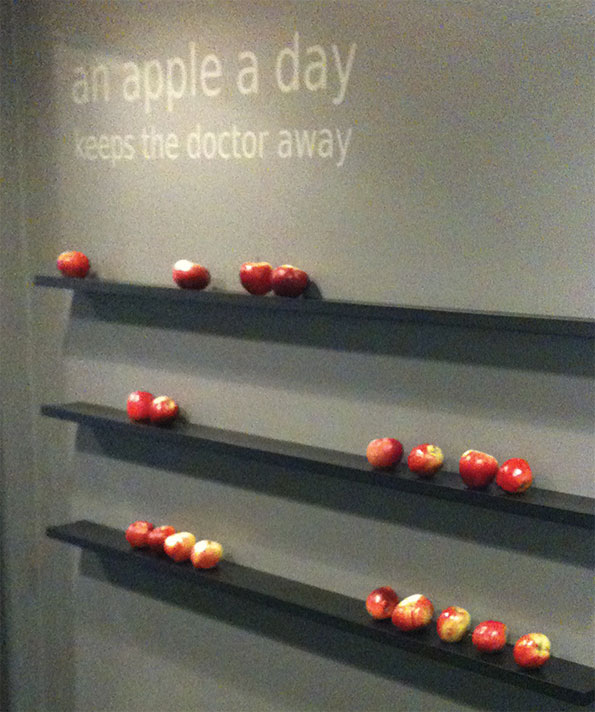 I remember an example of a hotel in Denmark. In their lobby, they put out two bowls -- one with apples and another with candy. Of course, everyone went for the candy (they didn't have too many Panchos in their sample study :)). But then they made this one small design tweak, which changed everything. They put a small sign that said, "Apple a day keeps the doctor away." Now, all of a sudden, everyone voluntarily went for the apples.
I remember an example of a hotel in Denmark. In their lobby, they put out two bowls -- one with apples and another with candy. Of course, everyone went for the candy (they didn't have too many Panchos in their sample study :)). But then they made this one small design tweak, which changed everything. They put a small sign that said, "Apple a day keeps the doctor away." Now, all of a sudden, everyone voluntarily went for the apples.
Similarly, on organ donation forms in different countries, countries that have a default "opt-in" will donate more. If you check-box for donation is checked already, 97% choose to donate. If it's not checked, only 23% want to donate their organs.
Little design elements can make a big difference, and the question is what are those tweaks that can awaken the heart, that nurture togetherness, that help us find our place in the cosmos? They aren't necessarily monetizable changes, sometimes even non-measurable changes, but they still matter.
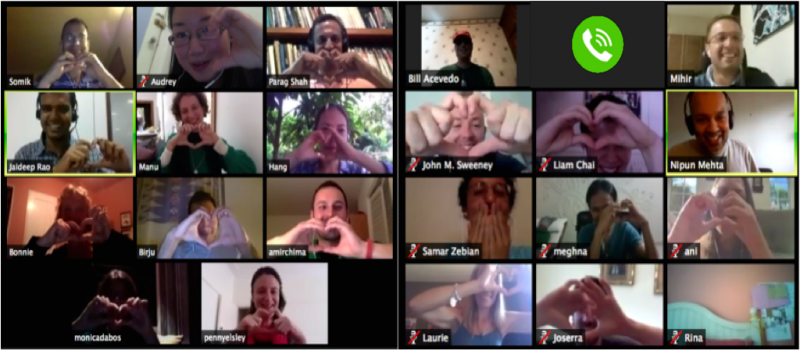
Projects Are Great, People Are Greater
In these Laddership Circles, I've been learning that projects are great but the people are greater. When we focus on projects, we're focusing on efficiency. Of course, I love being efficient when I can, but when we focus on people, there's a resiliency born of multi-dimensional relationships. When we focus on just the project, we invariably emphasize the impact and scale. Impact is also great, but people orientation unlocks a subtle and invisible resource -- inner transformation. When we're focusing on the project, we tend to be biased towards what we see on the outside versus the deeper ties that, for example, we might see at an Awakin Circle.
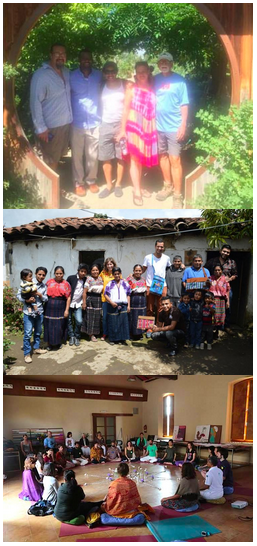 What do those designs look like? How do we hold space for that? How do we create containers to amplify it in the world? Our Laddership Circles started emerging because we would just encounter all these people doing labor of love projects. Like Nicole in Colorado doing Wild Dream Walks, where she holds space but on a walk while people engage around their dreams. "I can't charge for this," she felt, while still grappling with the question of sustenance. There's Fernando in Guatemala, a former professional basketball player, who says, "I'm starting a shoe business but I really want it to honor and support the rural artisans. How do I take fair trade to a new level?" There's Pranidhi, who started a yoga studio in LA but with community-based pricing, because yoga for her was too sacred to be commoditized. In Spain, Joserra is hosting Awakin Circles in prison, Karma Kitchen twice a month, and so much more. In London, Shamash started Museum of Happiness; at his first event, more than five thousand people came. Then, he started asking questions about a structure that aligned with his organizing principles. He's now asking questions like -- should we have these big massive events? Is labor of love spirit and depth of connection inversely proportional to size? After his Laddership Circle, he adopted the principle of being fully volunteer-run.
What do those designs look like? How do we hold space for that? How do we create containers to amplify it in the world? Our Laddership Circles started emerging because we would just encounter all these people doing labor of love projects. Like Nicole in Colorado doing Wild Dream Walks, where she holds space but on a walk while people engage around their dreams. "I can't charge for this," she felt, while still grappling with the question of sustenance. There's Fernando in Guatemala, a former professional basketball player, who says, "I'm starting a shoe business but I really want it to honor and support the rural artisans. How do I take fair trade to a new level?" There's Pranidhi, who started a yoga studio in LA but with community-based pricing, because yoga for her was too sacred to be commoditized. In Spain, Joserra is hosting Awakin Circles in prison, Karma Kitchen twice a month, and so much more. In London, Shamash started Museum of Happiness; at his first event, more than five thousand people came. Then, he started asking questions about a structure that aligned with his organizing principles. He's now asking questions like -- should we have these big massive events? Is labor of love spirit and depth of connection inversely proportional to size? After his Laddership Circle, he adopted the principle of being fully volunteer-run.
There's so many different configurations and there's no right answer because each answer is so contextual, unique to each person and each situation. What works for me may not work for Bonnie which may not work for Preeta, so we can't really copy and paste anything. Instead, we thought, "Why don't we just have a circle and hold the questions together? No one knows the answers but maybe when we come up with something together, in a collective intelligence way where 1+1 is greater than 2?
So we did start in January 2015 with our first six-week circle. In the last year and a half, we've had 8 circles (and an intern circle!), with fellows from 11 countries. Now, we have 76 alumni and all the circles are led by past alumni.
Whether it's an 9-week internship with younger participants or 6-week fellowship with most established change-makers, we engage the head, hands, and heart. With weekly readings and videos, we invite deep reflections that support the head's transformation. For cultivating intelligence of hands, we have weekly practices like sitting in silence, meditating, expressing gratitude, finding unexpected value, pushing an edge. These little practices on a daily basis to engage our hands and our heart.
Everything in between, we'll get together on these weekly calls and share about it and see what happens. I think it's been interesting, over the last year and a half, to just kind holding nothing. In a sense, you're holding emptiness, but around that emptiness if you just listen, so much is right there. All of the "feast" is right in front of you. Sometimes, when we're aiming for something, we don't recognize it when it's right in front of us. But if we just hold space, it's so powerful.
Value of Holding "Empty" Space
What value is created just by this process? Just by holding space to listen to each other?
There's Parag in India. He was in our circle this spring and he's such a full of heart guy but he's been on such a journey. He started this 2700 person company from scratch and runs it. On the side, he founded a K-12 IB school. He's involved in so many things -- and engaged with different practices and different conversations. Along the way, he says, "I have these platforms and I really just want it to be about service. How do I do that and what do I do?"
In one of our breakout calls, he shares this reflection: "When I first started my business, I thought, okay, what's my ROE: return on equity? I want to make sure that I make more than what I spend. After some success over many years, I started wondering what's the return on my ego? All my work has about showing the world and creating impact and doing grand things. But it was ego. Then I went to a 'Moved by Love' retreat, started a Karma Kitchen at my school and had a gift economy book sale, and I had another shift. What I was after was return on equanimity. From "return on equity" to "return on ego" to "return on equanimity". That, in the end, outcomes don't matter. I can be in this company, I can be at the school, I can be with my family, I can be with close ones, I can be at a retreat with friends and strangers, doesn't matter what setting, doesn't matter what I'm doing but how can I do that with love in my heart? And what actually will emerge when I do that with love in my heart?"
How To Measure One's ROE: Return On Equanimity
How do you quantify that? How do you measure that? How do you even talk about that? It's so subtle but that's the field of value that's being created. That's the depth of each person's engagement in that way.
 John Sweeney joined our circle last spring as well -- such a sweet guy. He shares about growing up he was really bullied a lot and so he never really made it that far in school and then he started this movement of suspended coffees. It's where you walk into a participating cafe and you can pay for a coffee for somebody you don't know and they'll mark it on wall; and then someone else can come in and cash in on that "suspended coffee". The cashier will erase that mark from the wall and gift that person a coffee.
John Sweeney joined our circle last spring as well -- such a sweet guy. He shares about growing up he was really bullied a lot and so he never really made it that far in school and then he started this movement of suspended coffees. It's where you walk into a participating cafe and you can pay for a coffee for somebody you don't know and they'll mark it on wall; and then someone else can come in and cash in on that "suspended coffee". The cashier will erase that mark from the wall and gift that person a coffee.
The concept has been around for a while, but he created a movement around it. He says, "I want to bring kindness in the world. I believe in acts of kindness and I want to bring it into the world and here's the impact of it but in these circles." In the Laddership Circles, we go through a lot of readings each week. One week, John shares in the circle, "You know, I realized the hardest thing is just quieting my mind so I can read. Sometimes I have to re-read a sentence 20 times! But I do it. Because I know there's something here. And because you're all here."
There's so much to learn from that sincerity.
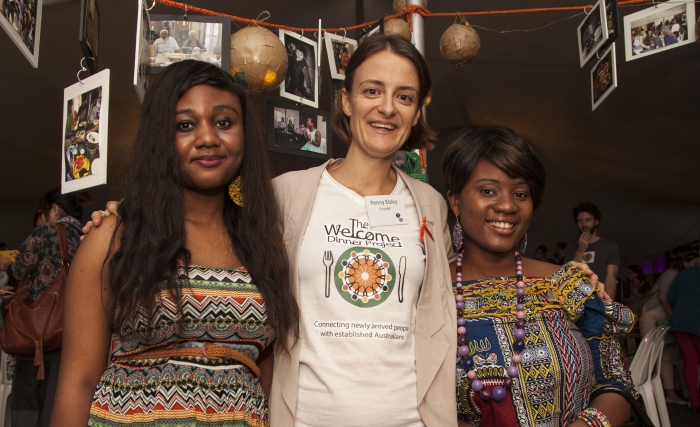 Penny in Australia started this social movement of people where she pairs up people who have been living in a city for a long time with new arrivals. They're new students, they're new travelers, they're refugees, all these different people who can connect with others in the community, across their apparent differences. She's experimenting with it. She was a teacher and then she spent 3 years volunteering around the world -- literally just walking and exploring. Then, she came back and said, "I really want to do something in my community" and she chose to be volunteer-run as one of her constraints. I think they have some staff but they're primarily volunteer driven.
Penny in Australia started this social movement of people where she pairs up people who have been living in a city for a long time with new arrivals. They're new students, they're new travelers, they're refugees, all these different people who can connect with others in the community, across their apparent differences. She's experimenting with it. She was a teacher and then she spent 3 years volunteering around the world -- literally just walking and exploring. Then, she came back and said, "I really want to do something in my community" and she chose to be volunteer-run as one of her constraints. I think they have some staff but they're primarily volunteer driven.
In our circle this past summer, Penny shared a story about one of her core volunteers. There was this one volunteer that came to Penny and said, "I want to learn from you for six months to a year. I want to volunteer with you full time."
So they got started. Then, Penny became pregnant and started planning for her maternity leave, during which this volunteer had agreed to help take on Penny's role. As time progressed, the volunteer said, 'You know, actually I don't know that I'm so interested in this. I'm maybe more interested in social enterprise and I also need to work a little bit."
Though Penny invested a lot of time and energy in training her and prepping her to take over during her maternity leave, she thought, "Okay. I'm just going to choose to see abundance here." Instead of getting upset over it, she not only waited for a different kind of abundance to arise, but she supported that volunteer's journey whole-heartedly.
"Oh yeah," she said, "I have a friend who's doing social enterprise. Let me introduce you." That volunteer is now working with Penny's friend. But she chose to connect to her core principle of supporting others' journeys unconditionally. She saw it as, "You're a volunteer and this is the fabric of our organization and I'm just going to trust that and I may not know what will come next, but I'm just going to sit with it and trust it and do my best."
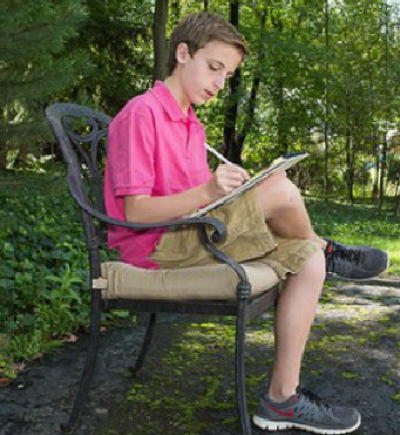 One last story. One of our interns this summer was Jacob. One of the things they had to do is meditate in the morning in the evening, 5 minutes at the start and 45 minutes by the end of the nine-week program. During the summer, he went to band camp and was living in a dorm with all these other high schoolers and they're doing their practices all day and by night, he had these 2 roommates. Still, he meditates. He's 15 so he'll sit there and meditate and his roommates are like, 'What are you doing?' He tells me, "I'm going this internship and one of the things we do is meditate to quiet the mind. You want to join?" They don't but he stands his ground! That's pretty amazing to do at 15.
One last story. One of our interns this summer was Jacob. One of the things they had to do is meditate in the morning in the evening, 5 minutes at the start and 45 minutes by the end of the nine-week program. During the summer, he went to band camp and was living in a dorm with all these other high schoolers and they're doing their practices all day and by night, he had these 2 roommates. Still, he meditates. He's 15 so he'll sit there and meditate and his roommates are like, 'What are you doing?' He tells me, "I'm going this internship and one of the things we do is meditate to quiet the mind. You want to join?" They don't but he stands his ground! That's pretty amazing to do at 15.
Those are just some example of value that is so meaningful, and yet subtle. You don't necessarily know what it leads to. You can't connect the dots right away and it also fits as a part of the field.
From Lebanon, Samar was part of our recent Laddership Circle. She's a professor herself. For our Week 4 homework, one of the questions was: "What is an instance of radical generosity that you've experienced?" And this was her response:
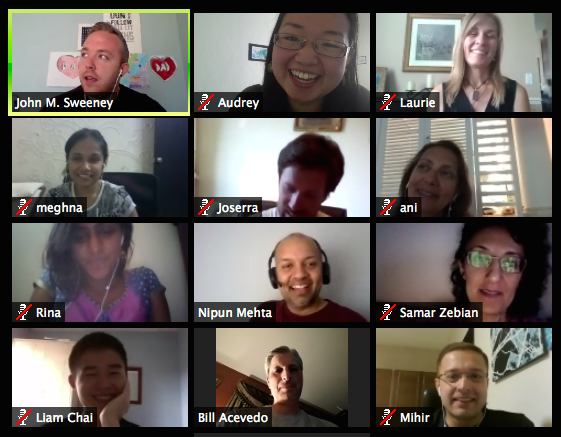 "ServiceSpace!!! and the Laddership Circle!! I have not seen anything like it yet, even in spiritual organisations premised on benevolent acts of kindness, love and so on. Last year, I was involved in an online course, offered by a very prestigious Ivy League university in the US. It ran 14 weeks and cost a month's salary. The Laddership Circle, which is offered entirely as a gift, is heads and leaps more effective -- the depth, quality of discussions, readings, the mentoring and guidance, the online platform, break out session options, the knowledge of the "instructor" -- basically everything! I am still in shock. The laws of the universe say that this shouldn't happen, but it has happened!"
"ServiceSpace!!! and the Laddership Circle!! I have not seen anything like it yet, even in spiritual organisations premised on benevolent acts of kindness, love and so on. Last year, I was involved in an online course, offered by a very prestigious Ivy League university in the US. It ran 14 weeks and cost a month's salary. The Laddership Circle, which is offered entirely as a gift, is heads and leaps more effective -- the depth, quality of discussions, readings, the mentoring and guidance, the online platform, break out session options, the knowledge of the "instructor" -- basically everything! I am still in shock. The laws of the universe say that this shouldn't happen, but it has happened!"
Now, she's like, "I'm really interested in this pedagogy and I really want to do this with youth and my research group is going to do this with me" and so they started this WhatsApp group with her research group and we're starting a local circle!"
My favorite part of her video message is when she said, "I know it's very hard to believe. We're putting together a business plan based on the gift ecology. We don't know if it's going to work, we're going to ask you guys for help if it doesn't work."
It's just so sweet and it's so inspiring to see this person in Lebanon where she's creating that community around her.
Deepening Service Journeys
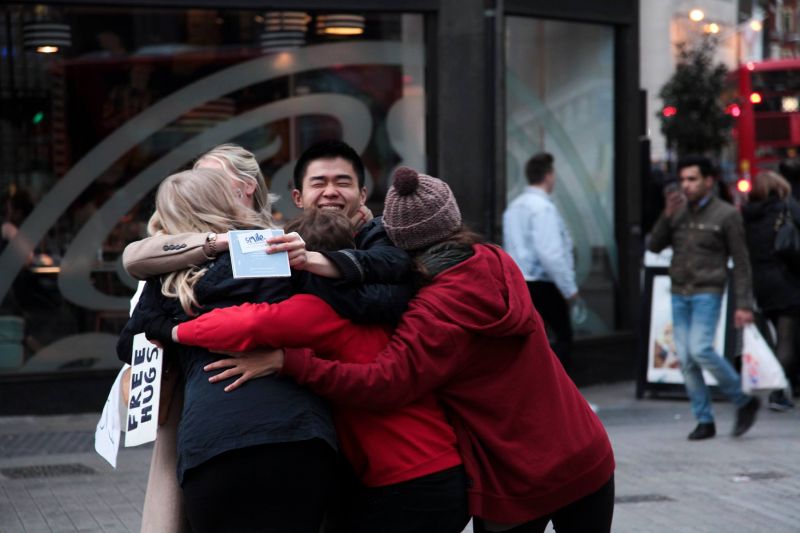 I'd imagine that most of us want to explore these ideas of how do I operate in a labor-of-love way? How do I design for transformation, and how do I just deepen in service?
I'd imagine that most of us want to explore these ideas of how do I operate in a labor-of-love way? How do I design for transformation, and how do I just deepen in service?
Liam who first joined our Laddership Circle and then became a volunteer said, "I was really inspired by operating from a mindset of searching and amplifying rather than planning and executing."
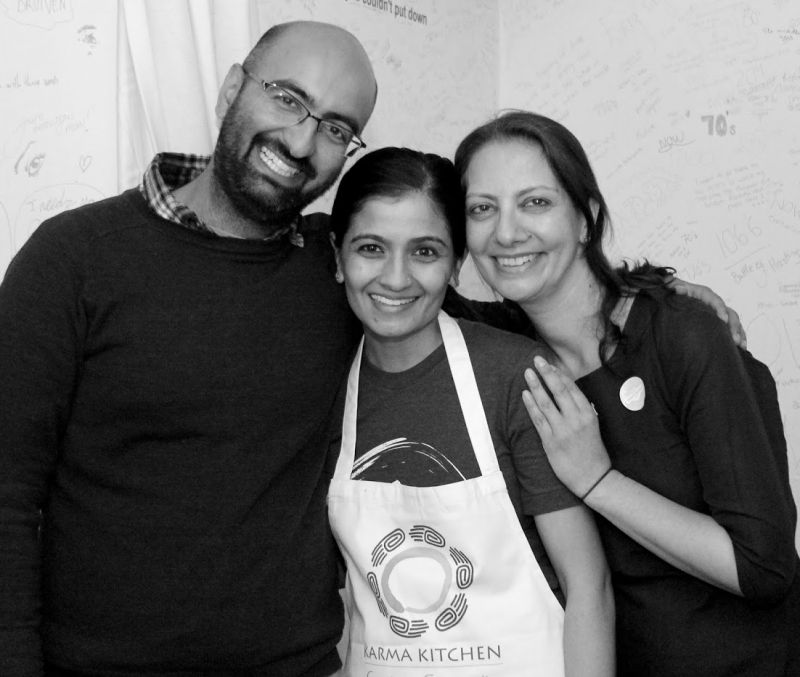
There are so many ripples, but I just want to close by saying what an honor it is to hold this empty space that is surrounded by so many amazing people. For the next batch, we are already overflowing with applicants. One of the applicants is a Buddhist monk, and on his form, in response to a question about a moment of radical generosity, he shared this story:
Giving without any sense of giver, gift, or recipient. Giving is just a manifestation of the natural flow of the awakened nature that embodies great compassion and wisdom.
One of the greatest acts of generosity I have seen occurred at the City of Ten Thousand Buddhas (CTTB). The days at CTTB are quite long, starting with Morning Ceremony at 4am in the morning going until the final chant that ends at 9:30pm. While a layman, I remember working all day with the monks on preparing for a large Dharma event at CTTB. The Abbot worked alongside all of us doing the basic manual work required to setup for the event. I was quite impressed with his humble attitude working with everyone.
After a long day of work, I came out of the Buddha Hall after the final chant at 9:30pm exhausted. The large Dharma event was going to begin the next morning, starting at 4am. A young man approached us walking out of the hall, "Who is going to watch the speakers?"
Last year, during a large Dharma event like this, the outdoor speakers were stolen by some pranksters in the area, so leaving them outside again without supervision was not a good idea. I thought to myself, "I'm exhausted! That's not my responsibility!" And I went off to the dorms to get a good nights sleep.
In the morning at 3:50am, I walked by the Buddha Hall and saw some of my friends sitting outside the hall. I asked them what they were doing, and they said that they were guarding the speakers. On a whim, they were wandering around the campus at night around 1:30am and saw the Abbot sitting in meditation outside next to the speakers. They told him that he could go get some rest and that they would stay up the rest of the night to watch the speakers.
I was amazed.
"He worked all day yesterday, and today he has to be host for almost all of the events. And in the end, he guarded the speakers?"
Later, my friends told me that when the Abbot came by before Morning Ceremony, he thanked them and said he "borrowed their blessings" that night.
That really struck me. Service without marks.
What a privilege to gather and support such noble intentions! It's exciting to see the potential of holding space to see, listen, and "ladder" each other, and notice what forms of value can emerge and how we can propel our projects and lives forward in alignment with those resources.
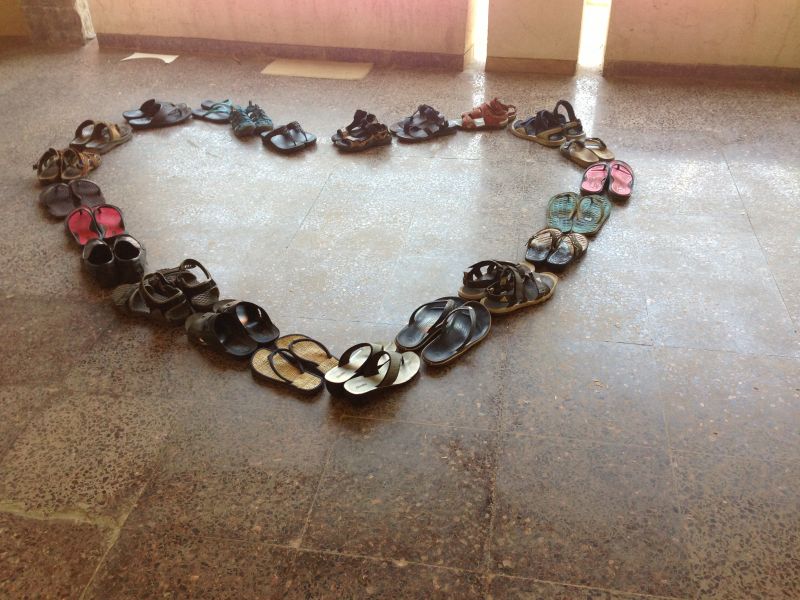
Posted by Audrey Lin on Sep 18, 2016
SHARE YOUR REFLECTION
4 Past Reflections


On Sep 18, 2016 Kozo Hattori wrote:

On Sep 19, 2016 Birju Pandya wrote:



On Sep 18, 2016 Pavi Mehta wrote:
Post Your Reply